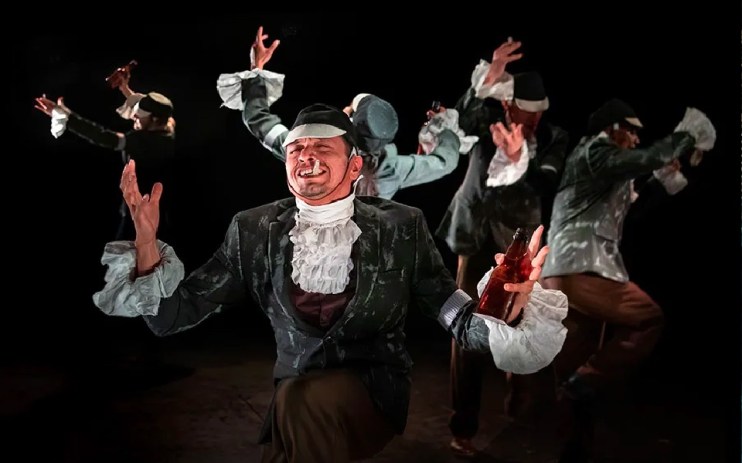Kin at the NT brings the migrant crisis to stage through mime

First performed at HOME Manchester in 2022, physical theatre company Gecko have brought the latest iteration of their acclaimed production Kin to the National’s Lyttelton Theatre. A tale of fleeing persecution only to be faced with an altogether different kind of hostility, you might struggle to find a more topical piece of theatre in London this month.
As well as the migration stories of its ten cast members, Kin is loosely inspired by the journey from Yemen to Palestine undertaken by Amit Lahav’s (Artistic Director of Gecko) grandmother in 1932. ‘Loosely’ is the key word here, as anyone hoping for the traditional narrative consistencies of time, place and character-driven plot will not find them in Kin.
It is hard to pinpoint an exact historical or geographic locus. Instead, we are shown a plethora of cramped domestic scenes, detention centres, border crossings and boats. The intention behind this vagueness of setting, I imagine, is to heighten the sense of a shared human experience.
No English is spoken until Kin’s closing scene, where the cast step forward to divulge their own histories of migration and geographical belonging. Though breaking the magic of the performance rather abruptly, this is a potent contextualisation of the preceding 80 minutes. Otherwise, transcending the limitations of language, Kin instead adopts the more universal vocabulary of movement. The choreography is dazzling by the way – simultaneously balletic and brutal. Amit Lahav has excelled here.
Kin’s soundscape, concocted by Mark Melville, is at once joyous and haunting: a cacophonous celebration of world music punctuated by jolting drumbeats and soaring vocals. We hear Mexico, India, the Middle East, China. The performance is worth a watch for its audio alone.
At times, there is a sense that Gecko are trying to achieve too much, trying to tell too grand a narrative where it might be more effective to offer a view through a narrower lens. However, as was apparent in the audience’s response to a final scene depicting a small boat Channel crossing, it delivers an important message about shared humanity and global responsibility with real impact.